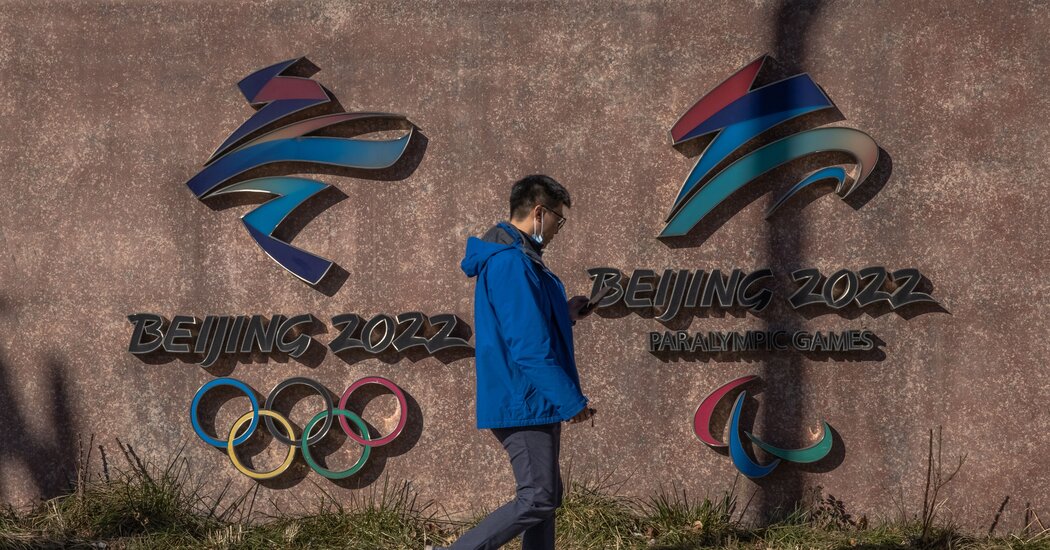
WASHINGTON — The Biden administration will not send any American government officials to the 2022 Winter Olympics in Beijing, making official a diplomatic boycott to pressure China for human rights abuses.
Jen Psaki, the White House press secretary, said that while American athletes would be able to compete in the Winter Games in Beijing, there would be no delegation of American officials.
She said the boycott was a response to human rights abuses in Xinjiang.
“This is just an indication that it cannot be business as usual,” Ms. Psaki said. “That does not mean that is the end of the concerns we will raise about human rights abuses.”
“We feel this sends a clear message,” she later added.
The announcement comes weeks after President Biden said the administration was considering a diplomatic boycott of the Winter Games in February, a break from a tradition of using a delegation to show support for American athletes and the country hosting the Olympics.
The diplomatic boycott has been described by some critics of China in Congress as a way to hold Beijing accountable while not punishing American Olympians. Other more hawkish members of Congress, including Senator Tom Cotton, Republican of Arkansas, have called for a total boycott of the Beijing Games.
Get Ready for the 2022 Beijing Winter Olympics
Just a few months after Tokyo, the Olympics will start again in Beijing on Feb. 4. Here is what you need to know:
“I don’t think we felt it was the right step to penalize athletes who have been training, preparing for this moment,” Ms. Psaki said.
Mr. Biden had raised the possibility of not sending the American delegation days after having a virtual meeting with China’s leader, Xi Jinping, that was meant to calm boiling tensions between the two nations. Both Democrats and Republicans in Congress, as well as human rights advocates, have called on the White House to use the Winter Games to pressure Beijing over abuses against the Uyghur community and a crackdown on free speech in Hong Kong.
The calls for the boycott have only intensified after the disappearance from public life of tennis star Peng Shuai, who accused a top Communist Party leader of sexual assault.
Senator Bob Menendez, Democrat of New Jersey and the chairman of the Senate Foreign Relations Committee, called the boycott “a powerful rebuke of the Chinese Communist Party’s campaign of genocide in Xinjiang.”
“This boycott is a necessary step to demonstrate our unwavering commitment to human rights in the face of the Chinese government’s unconscionable abuses,” Mr. Menendez said, adding that he hoped other nations would join the United States.
Ms. Psaki said administration officials made Beijing aware of the diplomatic boycott before Monday’s announcement.
China’s foreign ministry spokesman, Zhao Lijan, previously said those calling for a boycott were “grandstanding.”
“If the U.S. insists in willfully clinging to its course, China will take resolute countermeasures,” he said.
It appears the administration will move forward with the boycott without other allies. European nations are under pressure but have not made a decision on any potential diplomatic boycott.
Secretary of State Antony J. Blinken told The New York Times last month that the United States was discussing with allies “how they’re thinking about participation” in the Olympics. He called it “an active conversation.”
The U.S. Olympic and Paralympic Committee previously said in a statement that it did not support a boycott preventing American athletes from competing in Beijing.
The announcement of the boycott also comes ahead of Mr. Biden’s virtual global democracy summit later this week, an effort to take a public stand against authoritarianism and corruption. China was not among the more than 100 countries invited to the summit.
Lara Jakes contributed reporting.




